#Kenneth Blanchard
Text
Who Moved My Cheese? - an overly long tear down review
I want to talk about a book that always seems to be hanging around in a high position on lists of bestselling business books, or appearing on recommended reading lists for business. It's currently number 6 in Amazon UK's rankings of Business Life books: Who Moved My Cheese by Dr Spencer Johnson.
I was recommended this book by a coworker more than a decade ago and since I read it back then, it has stuck with me mainly because I felt a vague irritation at it. A little while ago, I was clearing out my bookshelves and decided it was time to re-read it and examine my feelings in more detail. Hence this review tearing it apart, which is probably going to end up being as many words as the key part of the book.
I don't really disagree with the book's core message. The idea at the heart of the book is a decent one and if you just gave me the middle section of the book to read, I would probably be perfectly fine with it and agree that it's a useful metaphor that some people would probably get value from. But the book doesn't just give you that middle section. It seems to be full of a sense of its own importance, as though it's the greatest piece of advice you will ever hear, relevant to everyone on the planet and utterly life-changing. That's the aspect of the book that I disagree with - not the main message, but in the way it implies that the message is universal and vital.
The first few pages of the book are filled with what I'm calling fluff. There is a two-page section titled The "Who Moved My Cheese" Phenomena! Complete with exclamation mark. This talks about how this idea helped Johnson deal with a difficult change in his life, how his friends said it helped them and one encouraged him to write it down. There's a mention of how quickly it became an international bestseller and how people all around the world found it helped their businesses, careers, health, and marriages.
All of this talking about the value is tempered by a paragraph saying that critics can't understand how people find it valuable. There is a response from that author that it is, "how you interpret it and apply it to your own situation that gives it value." And, yeah, I can get behind this as an idea. If a reader finds it applies to their situation, and they find it useful, great. Good for them. If the author had followed this up with something about us finding value in different places, or that different people have different circumstances so whether it applies will depend, anything like that, I probably would be okay with this bit of the book. Even if the author had just stopped at that sentence, it would have been acceptable. But this bit wraps up with this sentence: "Hopefully the way you interpret the story of Who Moved My Cheese? and put it into action in your life will help you find and enjoy the "New Cheese" you deserve."
This reads to me like the author is saying that if you don't find this useful, it's not because there was a problem with the book or that it just wasn't applicable to your situation - no. It was because you interpreted it badly.
Now maybe I'm being unfair here but given some of the things that are said later on, it does feel like Johnson is saying that if you don't get anything out of the book, it's on you for reading it wrong.
Anyway, moving on, we get a page of quotes about how amazing the book is, and then we get to the prologue.
The prologue is written by Dr Kenneth Blanchard, the friend who encouraged Johnson to write this book. It talks about how he heard Johnson tell the story and how he thought it was really helpful. The Cheese in the book is a metaphor for whatever it is you happen to want - money, freedom, success in your job, a better relationship, whatever. It's supposed to be applicable universally to anything someone might want to achieve. He talks about how this story can change lives and gives an example of someone he knew who was going through changes they were upset with at work, but who heard this story and changed his attitude and was rewarded for that positive attitude. The rest of the prologue is a mixture of him continuing to sing its praises and giving a brief summary of the different sections of the book.
The hype is maybe a touch over the top but you get that sometimes in prologues. Someone will be asked to write an introduction to the book and big it up, so there's nothing too outrageous here, just a continuation of the promise that this book will be amazing and life-changing.
Now we get to the framing device. A group of friends are having a reunion and talking about how much their lives have changed. One of them, Michael, says he heard this great story and changed his behaviour because of it, and everything got better, and how he told other people and loads of them changed for the better because of it.
"However there were a few people who said they got nothing out of it. They either knew the lessons and were already living them, or, more commonly, they thought they already knew everything and didn't want to learn."
Again we get this assumption that the story is applicable to everyone. If you don't gain anything from the book it's because you either already embody what it's trying to teach, or you just don't want to learn because you already think you know everything. The idea that the book might not fit everyone's circumstances just doesn't seem to occur to Johnson. This is why I called out the quote from earlier - the desire to blame the reader if they don't find the book useful is repeated here. In the book, Michael says that the people who don't learn from the story are like one of the characters in it - the one that refuses to change no matter what.
This intro section is only three pages long and it's mostly weirdly awkward dialogue. It's clear from reading it that Johnson is used to writing business books not fiction. The bit that really made me cringe was when Michael gave the title of the story and the group all laugh and one says he likes it already, and I'm reading this thing thinking, "Can you just stop praising your own story every other sentence and get on with telling it?"
Finally we get to the main story.
The story of Who Moved My Cheese is a simple parable about characters in a maze. You have two mice, called Sniff and Scurry, and two little people called Hem and Haw. The little people are like humans, but tiny so they can live in the maze with the mice. These characters are apparently supposed to represent different aspects of ourselves, but at other points in the book, the characters in the framing device talk about some people being like one or other of these characters, so I'm not sure the author was entirely clear about the analogy. Anyway, these characters live in the maze and they run around hunting for cheese.
The different characters have different approaches, with the mice just acting on instinct and the little people being more thoughtful, but they all spend their days hunting for cheese until they find Cheese Station C, where there is an abundant source. The mice stay prepared, ready to start hunting in the maze again if they need to, but the two little people settle down and get out of shape and lazy, feeling entitled to their cheese and sure that it will last forever.
As you can probably guess from the title of the book, the cheese doesn't stay forever. They get to the station one day and the cheese is gone. The mice just get on with it and go back out into the maze to hunt for cheese and they eventually find a wonderful new source of new cheese at Cheese Station N, but the two little people stay behind, angry and upset, waiting for the cheese to come back. They get hungrier and hungrier waiting for the status quo to come back, Haw because he's scared of going back into the maze and failing to find cheese, and Hem because he feels like he deserves that cheese and it should come back and if he stays right here, everything will be alright in the end.
Eventually, Haw decides he has to accept that things have changed and he goes back into the maze. A large chunk of the story is him wandering the maze, thinking to himself, and writing various life lessons on the wall. He has various realisations, like looking back and noting that the supply of cheese had been diminishing for a while and starting to smell bad and maybe if he'd been paying attention, he would have seen the change coming and not been so caught off guard by it. This bit of the story drags a little bit. It's still pretty short, but it could have been trimmed significantly without losing anything of substance. I wondered if Johnson padded this out and included things like the framing device of the reunion to make the whole thing long enough to sell as a book without people feeling like they were being cheated. This is pure speculation, but the whole book is less than a hundred pages long, in large print, with things like the important lessons each getting their own page. It does feel like he was desperately trying to fill up the space to make the print run worth it.
In the end, as expected Haw makes it to Cheese Station N and finds the new cheese and the mice and he's happy, but now he's learned his lesson and he'll be on the lookout for change and be prepared to go and hunt for newer cheese the next time something like this happens.
If the book just had this middle bit, I'd be fine with it. It's a simple parable talking about the fact that change is inevitable and you should react to it in a way that's productive instead of trying to pretend it's not happening. There's a summary of the life lessons at the end of the little story and it's things like monitor the situation and anticipate it so you can adapt quickly and that's pretty decent business advice. There's one bit about how you should enjoy the change and treat it like an adventure and learn to laugh at yourself and I can see where Johnson is coming from with this. Sometimes life sucks, but you can still try to look on the bright side and savour good moments when they come to help get you through it.
I didn't think the way this particular piece of advice was presented in the story was handled particularly well. Haw starts seeing his hunt for cheese in the maze as an exciting adventure - even while he is still starving because he hasn't found any yet. He's smiling and laughing at himself and having a good time rolling with the change - while his situation is terrible. It rings false to me. I can see how this could be interpreted as "look for the good in bad situations" but I can also see how it might be interpreted as, "You should have a positive attitude even when everything has changed for the worse or being miserable is your own fault." I can see the message Johnson is trying to give but I think it was presented in a really clunky way.
Still, you end up with a okay little story which tells a simple parable with some lessons that can be applied to real life.
So why am I writing this long tear down of this book?
Well, that's because of the final part.
We come back to the framing device and Michael telling the story to his friends. They decide that they should all meet up and have a discussion about what the story means and how it could apply to their lives. We're back to the clunkily written dialogue as the characters all discuss how wonderfully the story can be used to explain aspects of their own experiences. There's one example of someone whose department was closing down and the guy didn't want to see it so he didn't listen when people tried to talk to him about other opportunities, and someone else related it to having to close down stores in their business.
I think it weakens the story that you have to spell it out to the reader to make them see what it means. It's like the author is going, "Here's how a metaphor works," in the most patronising way possible.
But then you get someone saying he made everyone in his company read the book and say which character they were, and how they had to confront the Hems and the Haws and convince them to change and fired some of them. That whole scenario rang false, because Hem is so clearly presented as the bad guy in the story, he's the one you don't want to be like. I can't imagine that anyone would be given this book by their boss and say, "Oh, I'm definitely Hem," when asked which character they relate to. No one would say, "I'm the character we're all supposed to not be."
The characters keep talking about how wonderful change can be, and how when they were upset with a change it all worked out for the best in the end. They all agree about how wonderful the story is and how they're going to share it with their friends and families. You get one of the characters saying this: "It works best, of course, when everyone in your organization knows the story."
This feels like the author reaching out of the page to tell you to buy a copy for everyone you work with. There are several bits in this section that feel like the author doing a sales pitch to middle management to convince them to buy a hundred copies to give out at a corporate training event. It's more of the author aggrandising about how amazing his own book is and how applicable it is to everyone, and how everyone you know should read it because it will change their outlook on life. The book acts like it's the most important book you will ever read. And it's just not as special as it makes itself out to be.
If you read the story in the middle and you get something from it, wonderful. Good for you. But there are a lot of scenarios that the book doesn't touch on. It tries to simplify all possible situations and scenarios and ways of behaving down to these four characters in this extremely simplified situation, but in simplifying things down, it misses out on nuance and the millions of different real life scenarios that don't nicely map onto its little world of mice and cheese.
Here are some stories that don't fit this analogy.
I'm going to get a little personal and talk about my mum. My mum used to work as a biochemist, working in the research labs for a pharmaceutical company, running early tests to try and find out if various chemicals or compounds would be effective at treating diseases and other medical conditions. When it comes to creating a new drug, there are loads of stages, starting with simulations on computers and theoretical research, then trying things out in labs on cells and tissue samples, all the way through to various scales of human trials to see if the drug actually works to cure whatever it's intended for and/or has horrible side effects.
My mum worked doing those early lab trials and she really enjoyed her work. She found it interesting and intellectually stimulating. She liked that the work she was doing might help save lives. Before she worked for the pharmaceutical company, she worked in labs at a university also doing medical research. This was the work she wanted to do.
Then the company she worked for sold off its research arm and there were a load of people made redundant and she lost the job she loved in the lab. She got moved to a different area of the company and ended up transitioning into an IT job. For the rest of her working career up until she retired, she worked in an IT job. She found the job okay. It wasn't terrible, it had some good aspects to it and some bad aspects. There were coworkers she was really good friends with and co-workers she didn't really get on with. The job paid well enough and there were things she enjoyed about it, but it wasn't what she loved.
Someone moved her cheese and she went off into the maze and found some new cheese, just like the book says you should, but the cheese she found wasn't as good as the cheese she'd lost. The book tries to convince you that when you come out the other side of the change things will be better than they were before, and maybe sometimes they will be, but not always. Sometimes you have to compromise. Change is inevitable, sure, and you should adapt with it and make the best of the situation, but you're not always going to find that what you get at the end of the process is magically better than what you had before because the world just doesn't work that way.
Then let's look at the character of Hem. This is the character who's clearly framed to be the bad example in the book. We don't get a definitive answer of what happened to him because he gets left behind, but the implication is that he starved to death waiting for his cheese to be returned. When the cheese disappears in the middle of the story, he insists that it will come back and stays where he is.
You can see examples in the real world where companies tried to stick with the old way of doing things despite change that was going on and paid for it. Blockbuster Video was driven out of business by the rise in streaming services, and companies that depending on film photography paid the price for ignoring the rise of digital cameras. But sometimes a setback really is temporary.
In 2010, there was a massive volcanic eruption in Iceland that sent huge amounts of ash into the atmosphere and massively disrupted air travel. Several countries had to close their airspace because planes couldn't cope with the ash clouds. For a couple of months, fights continued to get cancelled or delayed. If we imagine an owner of a tour company in Iceland during those two months, this would be dreadful. No one would be flying into Iceland - at the heart of the problem - and so there would be no tourists buying tickets for the tours. In our metaphor, the cheese at the cheese station would have disappeared - and unlike the example in the book, it wouldn't have been possible to see this coming and prepare for the change. Also unlike the book, the attitude of, "If we just wait, the cheese will come back," is probably the correct one. Those couple of months were probably terrible if you worked in the tourism industry or had a shop in an airport or something like that, but the problem was a temporary one that righted itself. The position of the character Hem of staying where he was and waiting the problem out sometimes is the sensible approach.
If you owned a tour company and decided to throw it all in and set up a new business doing something completely different, you probably wouldn't have finished writing your business plan by the time the air cleared and planes were flying again.
The book is also extremely optimistic about change being achievable for everyone. You just need to put on your running shoes and head out into the maze and everything will turn out alright. But what about the mice that starve in the maze unable to find cheese through no fault of their own?
In the real world, there are people who find their cheese taken away. They lose their job because of something outside of their control, or there's a disaster which destroys their home, or they have a major health crisis - or all three at once. If they end up living out of their car, with their savings wiped out, and no fixed address to put on the job applications, you can't just say "keep looking for the opportunity." This is especially true for people who face discrimination.
In a period of depression, there might be thousands and thousands of people out of work, all competing for the same jobs. Telling them that they should just keep looking, just keep hunting the maze for their cheese, makes it seem like it's entirely their fault if they don't succeed. If you don't find a job, you just weren't looking hard enough, you weren't trying hard enough. The book doesn't even consider that there might be people in the maze, trying and trying and trying, hunting for their cheese, but getting nowhere - because of bad luck, because of discrimination, because there are just more mice than cheese at that point in time.
And then there are the people who have a bad situation but aren't in a position to look for a better one. To borrow the book's analogy, let's imagine a mouse is at a really terrible cheese station that gives out a couple of crumbs a day. Those crumbs are just barely enough for the mouse to make it back to the cheese station the following and to get the next crumbs, but the mouse is hungry and exhausted and just doesn't have the energy to go and hunt through the maze for better cheese because it's barely surviving as it is and if it leaves, it will have nothing.
There are people who are in a horrible situation with a sucky job and the instinct is to say, "Well, go and find a better job then." But hunting for a new job, applying for it, interviewing it, all of that takes time and energy, and if you're living pay check to pay check, working long hours to make ends meet, you might not be able to do that. If taking time off work to go and interview for a new job you might not even get means you won't get enough money to pay the bills this week, are you going to take that chance all that often? No. Because the priority is immediate survival. This book acts like sitting around in a bad situation is a mistake you should learn to avoid, but sometimes it's less a case of sitting there and more a case of being trapped their by circumstance.
So, yeah, there are a few thoughts about scenarios the book doesn't even think about.
This book is a case of advice that is sometimes helpful being treated as universal. I'm sure there are plenty of people who find it useful. If you're one of them, I won't try to take it away from you. I just wish it was less over the top in terms of how it presents itself.
It feels like fairly middle class advice. And by that I mean it assumes that whoever is reading it has opportunities and can take the chance to change without risking the foundations of your life. It's easier to strike out and hunt for new opportunities if you're a highly-educated, healthy, cis, white guy rich some savings in the bank account than it would be for other people missing some or all of those privileges. "Try hard enough and you'll get what you want," is fair enough as advice but it ignores the people who try really, really hard but who have the deck stacked against them.
One of the pieces of advice is about not being afraid to go into the maze and look for new cheese. Don't be afraid to go out and look for new opportunities is easier advice to take if you have a safety net of savings to fall back on if it takes you a little while to find a new job, or if you have enough funds that you can move to a new city, or if you own the house you live in so you don't have to worry about being homeless if something goes wrong.
Most self-help or advice books are aimed at a specific audience. There is a particular group of people who will read them and find the advice useful, and that's perfectly normal. No advice is going to be appropriate to everyone's circumstance. I wouldn't have a problem with this book if the author accepted that fact and didn't try to promote the book as something perfect that everyone should read and that if you don't get anything out of it, well that's your fault because you're clearly too much like Hem and just don't want to change.
As I said at the beginning, if this book came without the aggrandising and the irritating framing narrative, I'd find it fine. I wouldn't love it, but I'd accept it as okay. As it is, I find it infuriating because it feels like the author is unaware that his experiences aren't universal and believes that everyone in the world who ever lived will have their life changed by his simplistic fairytale and mediocre business advice.
6 notes
·
View notes
Text
Può sembrare che le persone oneste arrivino ultime al traguardo, ma di solito partecipano ad un’altra gara.
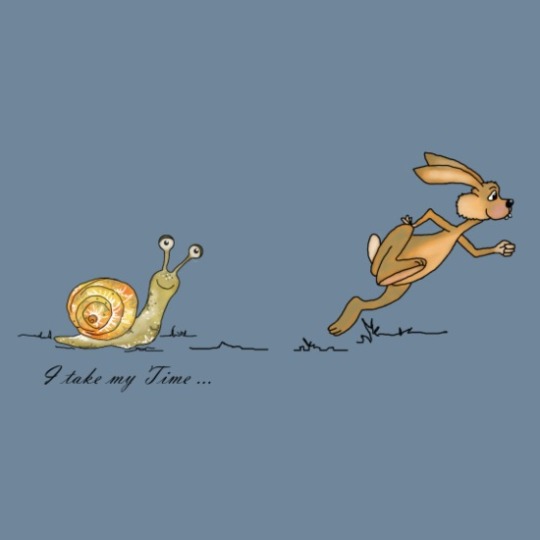
Kenneth Blanchard
9 notes
·
View notes
Quote
- Alcuni considerano le riunioni posti dove si guadagnano minuti e si perdono ore.
Kenneth Blanchard, Eunice Parisi-Carew, Donald Carew, Costruire gruppi di successo
17 notes
·
View notes
Text

..Può sembrare che le persone oneste
arrivino ultime al traguardo,
ma di solito partecipano
a un’altra gara. "
Kenneth Blanchard
2 notes
·
View notes
Text
Self help books
*1. "The 7 Habits of Highly Effective People" by Stephen Covey
2. "How to Win Friends and Influence People by Dale Carnegie
3. "Think and Grow Rich" by Napoleon Hill
4. "The Power of Now" by Eckhart Tolle
5. "The Four Agreements" by Don Miguel Ruiz
6. "The Alchemist" by Paulo Coelho
7. "The Secret" by Rhonda Byrne
8 "Awaken the Giant Within" by Tony Robbins
9. "Man's Search for Meaning" by Viktor E. Frankl
10. "The Road Less Traveled by M. Scott Peck
11. "The Power of Positive Thinking" by Norman Vincent Peale
12. "The Art of Happiness" by Dalai Lama XIV and Howard C. Cutler
13. "The 5 Love Languages" by Gary Chapman
14. "Mindset" by Carol S. Dweck
15. "The Miracle Morning" by Hal Elrod
*16. "The One Thing" by Gary Keller and Jay Papasan
17. "Getting Things Done" by David Allen
*18. "Atomic Habits" by James Clear
19. "Unlimited Power" by Tony Robbins
20. "The Compound Effect by Darren Hardy
21. "You Are a Badass" by Jen Sincero
22 "The Success Principles" by Jack Canfield
23. "The Law of Attraction" by Esther and Jerry Hicks
*24. "The 80/20 Principle" by Richard Koch
25 "The Lean Startup' by Eric Ries
26. "The E-Myth Revisited" by Michael E. Gerber
27. "Crush It!" by Gary Vaynerchuk
28. "The Art of Possibility by Rosamund Stone Zander and Benjamin Zander
29. "The One Minute Manager" by Kenneth H. Blanchard and Spencer Johnson
30 "The Compound Effect' by Darren Hardy
31. "The Gifts of Imperfection" by Brené Brown
32. "The 10X Rule" by Grant Cardone
33. "The Lean Entrepreneur" by Brant Cooper and Patrick Vlaskovits
34. "The Art of Non-Conformity by Chris Guillebeau
*35. "Essentialism" by Greg McKeown
36 "The Power of Full Engagement" by Jim Loehr and Tony Schwartz
37. "The Big Leap" by Gay Hendricks
38 "Mind Over Mood" by Dennis Greenberger and Christine Padesky
*39 "The Now Habit" by Neil A. Flore
40. "The Happiness Project" by Gretchen Rubin
Productivity books
1. "Getting Things Done" by David Allen
*2. "The 7 Habits of Highly Effective People" by Stephen Covey
3. "Deep Work" by Cal Newport
*4. "Atomic Habits" by James Clear
*5. "The One Thing" by Gary Keller and Jay Papasan
*6 "Essentialism" by Greg McKeown
7. "The Productivity Project" by Chris Bailey
8. "Smarter Faster Better" by Charles Duhigg
9. "Make Time" by Jake Knapp and John Zeratsky
10. "The Power of Habit" by Charles Duhigg
11. "Eat That Frog" by Brian Tracy
*12. "The 80/20 Principle" by Richard Koch
13. "The Pomodoro Technique" by Francesco Cirillo
14. "The Lean Startup" by Eric Ries
*15."The Now Habit" by Neil Fiore
16. "The Checklist Manifesto" by Atul Gawande
17. "Sprint" by Jake Knapp, John Zeratsky, and Braden Kowitz
18 "The War of Art" by Steven Pressfield
19. "The Compound Effect" by Darren Hardy
20. "The E-Myth Revisited" by Michael E. Gerber
21. "The Miracle Morning" by Hal Elrod
22 "Procrastinate on Purpose" by Rory Vaden
23. "The 4-Hour Work Week" by Timothy Ferriss
24 "The Organized Mind" by Daniel J. Levitin
25. "The Time Trap' by Alec Mackenzie and Pat Nickerson
26. "Flow" by Mihaly Csikszentmihalyi
27. "The Willpower Instinct by Kelly McGonigal
28 "Time Management for System Administrators" by Thomas A. Limoncelli
29 "The Goal" by Eliyahu Goldratt
30. "The Way We're Working Isn't Working" by Tony Schwartz
31. "The Art of Stress-Free Productivity" by David Allen
32 "First Things First" by Stephen Covey
33. "The Productivity Handbook" by Paul J. Meyer
34. "The Art of Getting Things Done" by David Allen
35. "The Procrastination Equation' by Piers Steel
36. "Rework" by Jason Fried and David Heinemeier Hansson
37. "Do More Great Work" by Michael Bungay Stanier
38. "The Time Paradox" by Philip Zimbardo and John Boyd
39. "Make It Stick" by Peter C. Brown, Henry L Roediger III, and Mark A. McDaniel
40. "The Motivation Manifesto' by Brendon Burchard
5 notes
·
View notes
Text
used to live with someone who did reviewing for ray blanchard and kenneth zucker occasionally and when i asked why in the fuck they would keep doing this and accepting the reviews (unpaid) they'd be like oh well no one else will do it as well as me, no one else can call them on their bullshit. like why they didn't put that time into publicly advocating for those papers not to be published at all instead of procrastinating on reviewing them and complaining about it constantly is beyond me. probably cause they cared about their academic career more than any other trans person
1 note
·
View note
Link
2 notes
·
View notes
Text
Navigating Leadership Dynamics: A Deep Dive into Situational Leadership Theory

In the dynamic realm of leadership, where adaptability is key, the Situational Leadership Theory (SLT) stands as a guiding framework that acknowledges the fluid nature of leadership styles. Developed by Paul Hersey and Kenneth H. Blanchard in the late 1960s, this theory has since become a cornerstone in leadership studies. This article explores the core tenets of Situational Leadership Theory, its practical applications, and the enduring impact it has had on the understanding of effective leadership.
Understanding Situational Leadership Theory
1. Core Principles
Situational Leadership Theory revolves around the idea that there is no one-size-fits-all approach to leadership. Instead, effective leaders must adapt their leadership styles based on the readiness and maturity of their followers. The model identifies four primary leadership styles: directing, coaching, supporting, and delegating. The leader’s role is to assess the readiness of their team members and apply the most appropriate leadership style for the given situation.
2. Readiness Levels

Low Competence, High Commitment (D1): Followers at this level are eager but lack the necessary skills. They require a directing leadership style, with the leader providing clear instructions and guidance.
Some Competence, Low Commitment (D2): Followers here have acquired some skills but lack confidence or motivation. Coaching is the appropriate leadership style, involving a more collaborative approach to build confidence and commitment.
Moderate to High Competence, Variable Commitment (D3): Followers at this level possess the required skills but may still need support or motivation. A supporting leadership style, characterized by a facilitative approach, is suitable.
High Competence, High Commitment (D4): Followers at this level are both competent and committed. Delegating becomes the preferred leadership style, allowing followers greater autonomy and responsibility.
Practical Applications of Situational Leadership Theory
1. Leadership Flexibility
One of the key takeaways from Situational Leadership Theory is the importance of leadership flexibility. Leaders who can adapt their styles to meet the specific needs of their team members are better positioned to navigate various challenges and foster a positive working environment.
2. Employee Development

SLT emphasizes the role of leaders in facilitating the development of their team members. By assessing readiness levels and adjusting leadership styles accordingly, leaders can create tailored development plans, ensuring that each team member receives the guidance and support they need to thrive.
3. Effective Communication
Effective communication is a cornerstone of Situational Leadership. Leaders must not only convey information clearly but also adapt their communication style based on the readiness and needs of their team members. This fosters a more inclusive and responsive leadership approach.
Criticisms and Challenges
1. Over-Simplification
Critics argue that Situational Leadership Theory oversimplifies the complex nature of leadership by categorizing individuals into discrete readiness levels. In reality, the readiness of individuals is a dynamic and multifaceted aspect that cannot be neatly classified.
2. Limited Predictive Power
Some scholars suggest that SLT has limited predictive power in terms of forecasting leadership effectiveness. The model’s focus on situational factors makes it challenging to apply in a predictive manner, as leadership effectiveness is influenced by numerous variables.
3. Lack of Emphasis on Context
While SLT acknowledges the importance of situational factors, it may not adequately address the broader organizational or cultural context in which leadership occurs. Effective leadership is not only about adapting to individual readiness levels but also about understanding and aligning with the larger organizational context.
Evolution and Integration
1. Contemporary Leadership Theories

While Situational Leadership Theory remains relevant, contemporary leadership theories, such as transformational and servant leadership, have gained prominence. These theories emphasize the importance of inspiring and empowering followers, going beyond the situational aspects highlighted by SLT.
2. Integration with Modern Leadership Practices
Organizations today often adopt a more integrative approach, drawing from multiple leadership theories to create a flexible and adaptive leadership strategy. Situational Leadership can be integrated with other models, allowing leaders to benefit from its insights while also incorporating the strengths of alternative frameworks.
Conclusion
Situational Leadership Theory has undeniably left an indelible mark on the leadership landscape. Its emphasis on adaptability and responsiveness to the unique needs of followers has provided valuable insights for leaders striving to navigate the complexities of today’s organizational environments. While the theory has faced criticisms, its enduring legacy lies in its practical applications and the foundation it has provided for a more nuanced understanding of leadership dynamics. As leadership theories continue to evolve, the principles of Situational Leadership remain a valuable compass for leaders seeking to guide their teams through the ever-changing currents of the modern workplace.
#situationalleadershiptheory#leadershipdevelopment#adaptiveleadership#workplacelearning#LeadershipInsights#leadershiptheory#organizationalleadership#LeadershipStrategies
0 notes
Text
Top 5 @Wikipedia pages from yesterday: Saturday, 6th January 2024
Welcome, ողջու՜յն (voġčuyn), üdvözöljük, velkommen 🤗
What were the top pages visited on @Wikipedia (6th January 2024) 🏆🌟🔥?

1️⃣: Christian Oliver
"Christian Oliver (3 March 1972 – 4 January 2024) was a German actor who was mainly known for his role in the Cobra 11 television series...."

Image licensed under CC BY-SA 3.0? by David Shankbone
2️⃣: Jeffrey Epstein
"Jeffrey Edward Epstein ( EP-steen; January 20, 1953 – August 10, 2019) was an American financier and sex offender. Born and raised in New York City, Epstein began his professional life by teaching at the Dalton School despite lacking a college degree. After his dismissal from the school in 1976, he..."

Image by Department of Justice
3️⃣: Saltburn (film)
"Saltburn is a 2023 black comedy psychological thriller film written, directed, and produced by Emerald Fennell, starring Barry Keoghan, Jacob Elordi, Rosamund Pike, Richard E. Grant, Alison Oliver, and Archie Madekwe. Set in Oxford and Northamptonshire, England, the film follows an Oxford university..."
4️⃣: Murder of Dee Dee Blanchard
"On June 14, 2015, sheriff's deputies in Greene County, Missouri, United States, found the body of Clauddine "Dee Dee" Blanchard (née Pitre; born May 3, 1967, in Chackbay, Louisiana) face down in the bedroom of her house just outside Springfield, lying on the bed in a pool of blood from stab wounds..."
5️⃣: David Soul
"David Soul (born David Richard Solberg; August 28, 1943 – January 4, 2024) was an American and British actor. With a career spanning five decades, he rose to prominence for portraying Detective Kenneth "Hutch" Hutchinson in the American television series Starsky & Hutch from 1975 to 1979. His other..."
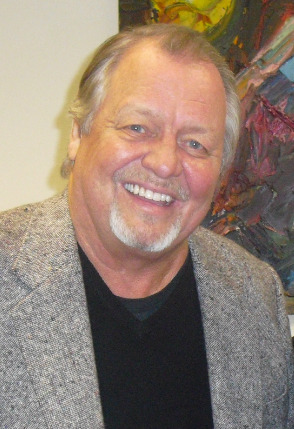
Image licensed under CC BY-SA 3.0? by Education-files
0 notes
Photo
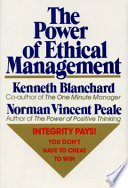
Ethics in business is the most urgent problem facing America today. Now two of the best-selling authors of our time, Kenneth Blanchard and Norman Vincent Peale, join forces to meet this crisis head-on in this vitally important new book. The Power of Ethical Management proves you don't have to cheat to win. It shows today's
0 notes
Text
Project Platinum Reviews: Is It The Right Solution?
What Exactly Is Project Platinum?
Project Platinum is a revolutionary three-step freedom business that has changed the way people earn money online. This system was created to assist participants in earning thousands of dollars per day without the need for a product, website, or e-commerce store. It is a simple yet highly effective system that has already assisted 11,553 participants in earning an incredible $87,831,489.

The best thing about Project Platinum is that it is supercharged to generate consistently fast profits. You can start earning $1000 per day by working just four hours per day and can even reach $18000 per day with the help of the system's AI software.
The beauty of this system is its ease of use and accessibility. To get started, you don't need any prior experience or technical knowledge, and you can work from anywhere in the world. Project Platinum's AI software is simple to use and highly effective, allowing you to automate many of the tasks involved in earning money online.
How Does The Platinum Project Work?
Project Platinum is a comprehensive online marketing system designed to assist individuals in starting and growing a successful business. The system gives participants access to a variety of tools, software, educational materials, and virtual events, all of which are designed to help them generate income online.
Participants who purchase Project Platinum receive immediate access to over $59,000 in digital products, including a 6-week digital course, AI-powered software, a mentoring group, a Facebook community, traffic-generating tools, and a landing page generator. The online course teaches you how to start and scale an online marketing business, while the AI-powered software automates many of the tasks associated with earning money online.
Participants will also have access to a private coaching group and Facebook community, where they will be able to network with other like-minded people and receive guidance and support from experienced coaches. Participants can use the traffic generator tools and landing page builder to drive traffic to their websites and convert that traffic into sales.
Project Platinum Reviews - How Much Do Customers Make?
Project Platinum is a new program that provides users with affiliate marketing training and tools. It is worth noting that some of Robby Blanchard's former students have achieved significant success, earning thousands of dollars per day, by putting his knowledge and guidance in affiliate marketing to use.
Some of the Project Platinum reviews mentioned on its official website are listed below. You should read them:
Kenneth claims to have made $30k in the last week. And on his best day, he earned $5.9k per day, which is incredible.
Michel claims to have earned $260,000 in January. He enrolled in the program, which enabled him to earn $20k per week. He simply copied everything as instructed in the program, and the results were astounding.
Another participant claims to have made $1,000 in a matter of days. Her earnings increased dramatically after receiving coaching from the program's coaches.
Overall, Project Platinum reviews are positive, and it has helped people earn real money quickly.
Pricing and Availability For Project Platinum
You can get involved in Project Platinum by going to its official website. This course can only be found on its official website. And you can get it for a one-time payment of $2,497. Those who prefer to pay in installments can do so as well. For those who do not want to pay the fees all at once, $997 is charged for three months, which is extremely convenient.
0 notes
Photo
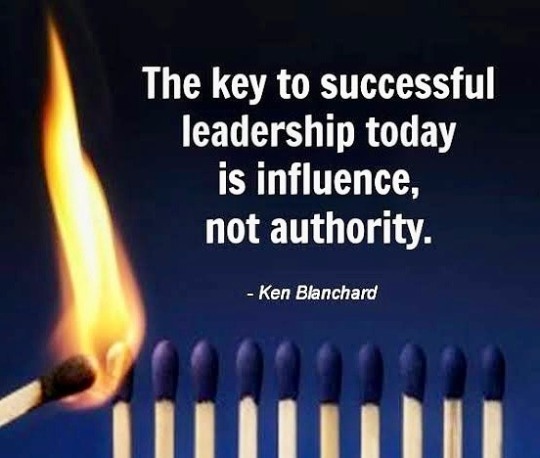
The key to successful leadership today is influence, not authority. ~ Kenneth Blanchard https://www.instagram.com/p/CqUYXd6LaxD/?igshid=NGJjMDIxMWI=
0 notes
Text
The Top 10 Project Management Books Everyone Should Read

Are you looking to enhance your project management skills? Want to learn more about the principles of project management? Look no further than these top 10 project management books. From classic to contemporary, these books cover a wide range of topics and offer valuable insights and practical advice for project managers at all levels.
Without further ado, let’s dive into the list:
1.”The Art of Project Management” by Scott Berkun (2005)
This classic book by Scott Berkun is a must-read for any project manager. It covers all the basics of project management, from planning to execution to closure. The book is written in a clear and concise style, making it accessible to readers at all levels of experience.
2.”Crucial Conversations” by Kerry Patterson, Joseph Grenny, Ron McMillan, and Al Switzler (2002)
Effective communication is essential for successful project management, and “Crucial Conversations” is the go-to resource for mastering this skill. The book provides practical tools and techniques for having difficult conversations and resolving conflicts. It’s a great resource for project managers who want to improve their communication skills.
3.” The Lean Startup” by Eric Ries (2011)
In “The Lean Startup,” Eric Ries introduces the principles of the Lean Startup methodology, which is all about minimizing waste and maximizing value. The book is a great resource for project managers who want to develop innovative products and services while minimizing risk and maximizing ROI.
4.“Scrum: The Art of Doing Twice the Work in Half the Time” by Jeff Sutherland (2014)
Scrum is a popular Agile project management framework, and “Scrum: The Art of Doing Twice the Work in Half the Time” is the definitive guide to this approach. The book is written by one of the co-founders of Scrum and provides practical advice and real-world examples for implementing the framework in your projects.
5."The One Minute Manager” by Kenneth Blanchard and Spencer Johnson (1982)
“The One Minute Manager” is a classic book that provides a simple and effective approach to management. The book emphasizes the importance of setting clear goals, providing feedback, and delegating effectively. It’s a great resource for project managers who want to improve their leadership skills.
6.“The 7 Habits of Highly Effective People” by Stephen R. Covey (1989)
Stephen Covey’s “The 7 Habits of Highly Effective People” is a timeless classic that offers insights into all aspects of your life. The 7 Habits are a set of principles that will help you become more productive, build better relationships, and achieve your goals. This book is a must-read for anyone who wants to become a better project manager.
7. “The Agile Samurai” by Jonathan Rasmusson (2010)
“The Agile Samurai” is a unique book that’s written in the form of a novel, making it a fun and engaging read. The book teaches the principles of Agile project management and how to apply them to your projects. The Agile approach is all about flexibility, continuous improvement, and collaboration. This book is a great resource for anyone who wants to learn more about Agile project management.
8.“Project Management for Dummies” by Stanley E. Portny (2017)
Project Management for Dummies” is part of the popular “For Dummies” series and is a great resource for beginners. The book covers all the basics of project management, from planning to execution to closure. It’s written in a straightforward and easy-to-understand style, making it accessible to everyone.
9.“Managing Projects with GNU Make” by Robert Mecklenburg (2004)
Managing Projects with GNU Make” is a book that focuses on the technical side of project management. The book covers the GNU Make utility, which is a powerful tool for building and managing software projects. The book provides practical advice and real-world examples for using GNU Make in your projects.
10. The Phoenix Project” by Gene Kim, Kevin Behr, and George Spafford (2013)
The Phoenix Project” is a novel that tells the story of a fictional company that is struggling to implement a new project management approach. The book provides valuable insights into the principles of DevOps, a methodology that emphasizes collaboration and automation. The book is a fun and engaging read that offers practical advice for project managers in any industry.
In conclusion, these top 10 project management books offer valuable insights and practical advice for project managers at all levels of experience. From classic to contemporary, these books cover a wide range of topics, including communication, leadership, Agile, and technical skills. Whether you’re a beginner or a seasoned pro, these books are sure to enhance your project management skills and help you achieve success in your projects. So, pick up a book today and start enhancing your project management skills!
For more details visit incepteo.com
#bespoke software development#custom software development#web application development#mobile app development
1 note
·
View note
Quote
Per essere efficace un gruppo deve avere chiarezza nei ruoli (chi fa che cosa?) e negli obiettivi (che cosa cerchiamo di ottenere?).
Kenneth Blanchard, Eunice Parisi-Carew, Donald Carew, Costruire gruppi di successo
16 notes
·
View notes
Photo
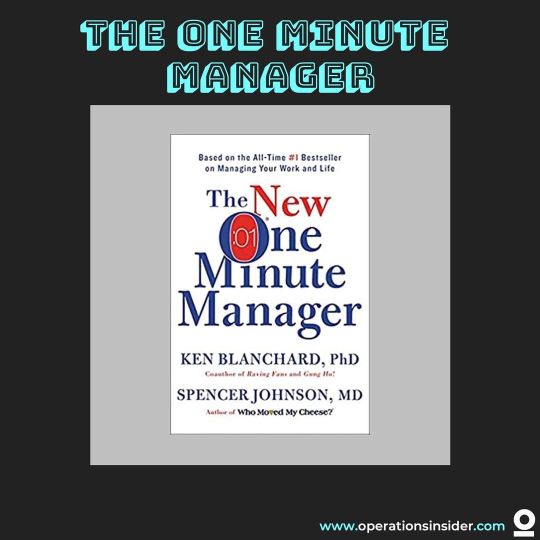
Kenneth Blanchard is a management expert, leadership consultant, and speaker who has authored several best-selling books on leadership and organizational behavior. Spencer Johnson was an American physician and author who wrote several books on personal and organizational development. Together, they wrote "The One Minute Manager," which is a classic book that has been widely acclaimed for its simple and effective approach to management. The book is a quick and easy read that outlines a practical approach to effective management in a simple parable format. The authors explain how the One Minute Manager approach can be applied to achieve better results and better relationships with employees. The book presents a straightforward framework for effective leadership, focusing on clear goals, performance standards, and accountability. The approach is built around three core principles: goal setting, performance improvement, and positive reinforcement. Go to operationsinsider.com to read the full summary including the key takeaways of this book. Link for summaries or purchase in BIO Like❤️/Share✅/comment👇/follow👉@operationsinsider #opex #operationsinsider #wasteattack #waste #TheOneMinuteManager #KennethBlanchard #Leadership #Management #Productivity #EffectiveCommunication #PerformanceManagement #Motivation #BookSummary #BusinessBooks #PersonalDevelopment #SuccessTips #TeamManagement #EmployeeEngagement #LeadershipBooks #TimeManagement #GoalSetting #ManagementTips #ManagementSkills #SelfImprovement #WorkplaceProductivity #CareerAdvice #LeadershipDevelopment #ManagementDevelopment #professionalgrowth (hier: Burj Khalifa,Dubai,U.A.E) https://www.instagram.com/p/CpTEkqauhX-/?igshid=NGJjMDIxMWI=
#opex#operationsinsider#wasteattack#waste#theoneminutemanager#kennethblanchard#leadership#management#productivity#effectivecommunication#performancemanagement#motivation#booksummary#businessbooks#personaldevelopment#successtips#teammanagement#employeeengagement#leadershipbooks#timemanagement#goalsetting#managementtips#managementskills#selfimprovement#workplaceproductivity#careeradvice#leadershipdevelopment#managementdevelopment#professionalgrowth
0 notes
Text
20 QUOTES THAT EVERY LEADER NEEDS TO LIVE BY

Leadership is one of the most important skills that a person can possess. A great leader can inspire people to achieve great things, and help them grow as individuals. In order to be a successful leader, you need to have a set of guiding principles that you live by. Here are 20 quotes that will help you become a better leader!
“Leadership is about making others better as a result of your presence and making sure that impact lasts in your absence.” – Sheryl Sandberg
“If your actions inspire others to dream more, learn more, do more and become more, you are a leader.” – John Quincy Adams
“Leaders think and talk about the solutions. Followers think and talk about the problems.” – Brian Tracy
“A leader is one who knows the way, goes the way, and shows the way.” – John C. Maxwell
“The best leaders are those most interested in surrounding themselves with assistants and associates smarter than they are. They are frank in admitting this and are willing to pay for such talents.” – Colin Powell
“Leadership is the art of getting someone else to do something you want done because he wants to do it.” – Dwight Eisenhower
“Leadership is the capacity to translate vision into reality.” – Warren Bennis
“The task of the leader is to get his people from where they are to where they have not been.” – Henry Kissinger
“Leadership does not always wear the harness of compromise.” – Woodrow Wilson
“The challenge of leadership is to be strong, but not rude; be kind, but not weak; be bold, but not bully; be thoughtful, but not lazy; be humble, but not timid; be proud, but not arrogant; have humor, but without folly.” – Jim Rohn
“The leader has to be practical and a realist, yet must talk the language of the visionary and the idealist.” – Eric Hoffer
“Leadership is not about titles, positions or flowcharts. It is about one life influencing another.” – John C. Maxwell
“Leadership is lifting a person’s vision to high sights, the raising of a person’s performance to a higher standard, the building of a personality beyond its normal limitations.” – Peter Drucker
“The first responsibility of a leader is to define reality. The last is to say thank you. In between, the leader is a servant.” – Max DePree
“To do great things is difficult; but to command great things is more difficult.” – Friedrich Nietzsche
16. “Leadership is the art of getting someone else to do something you want done because he wants to do it.” – Dwight Eisenhower
“A leader is best when people barely know he exists, when his work is done, his aim fulfilled, they will say: we did it ourselves.” – Lao Tzu
“Leadership is the ability to get extraordinary achievement from ordinary people.” – Brian Tracy
“The key to successful leadership today is influence, not authority.” – Kenneth Blanchard
“Don’t tell people how to do things, tell them what to do and let them surprise you with their results.” – George S. Patton
Leaders should always strive to live by these words of wisdom in order to become better leaders. By taking the time to reflect on these quotes, they can grow and develop in their leadership roles. Hopefully, these quotes will help you become the best leader you can be!
Website : https://leadertrip-coaching.com/blogs-/20-quotes-every-leader-needs-live-by/
1 note
·
View note